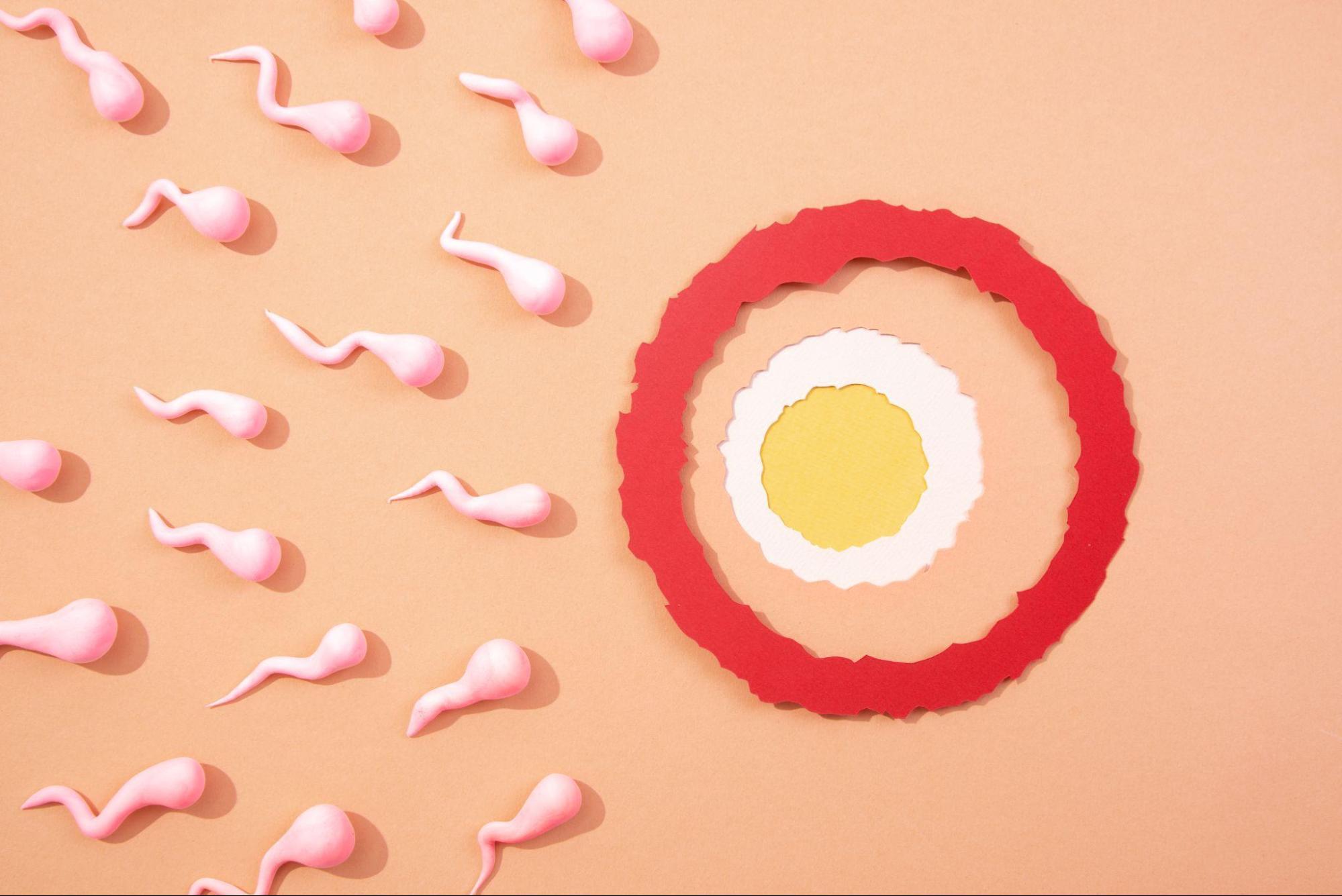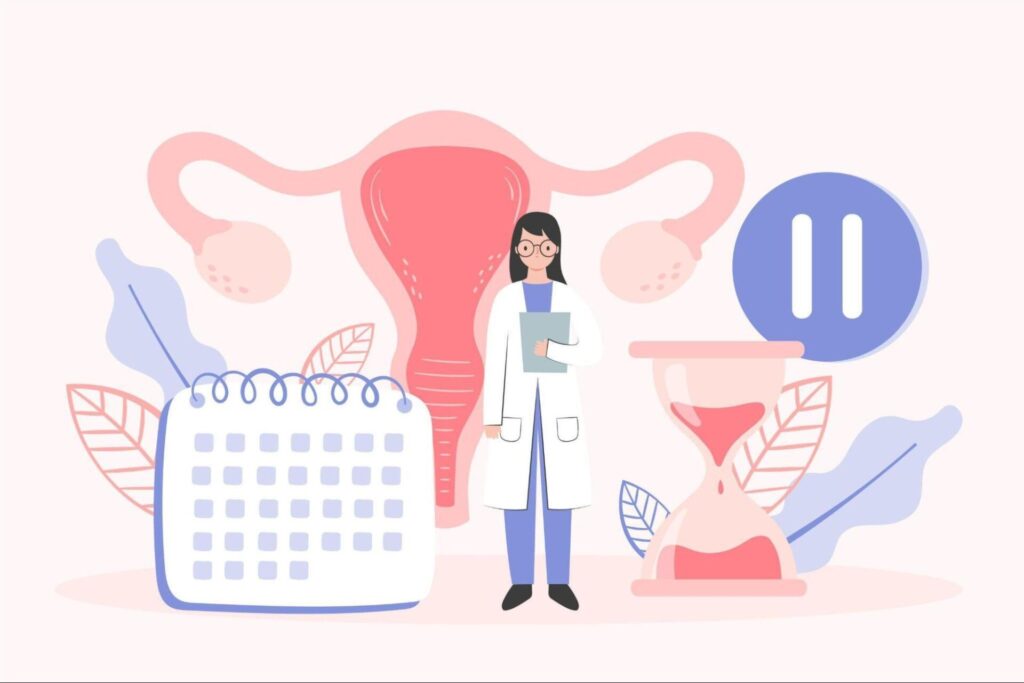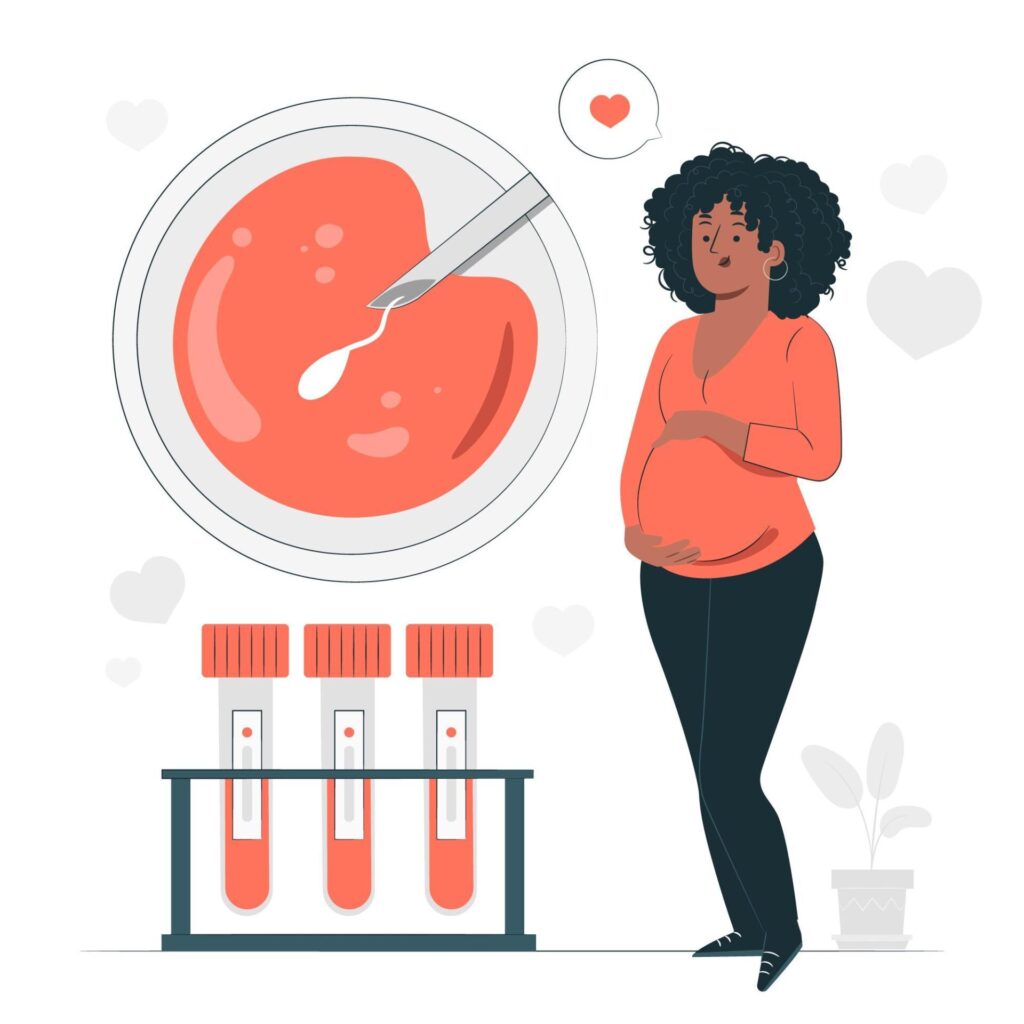HIGHLIGHTS
20 December 2020
5 yoga poses for couples to Enhance your relationship with your partner, level up your happiness in bed.
READ MORE20 December 2020
7 the procedure takes care of yourself and the wife before collecting eggs-collecting sperm.
READ MORE20 December 2020
Protein, a key nutrient of a woman, preparation for pregnancy- preparation for an egg collection.
READ MORE
Why Is It Important for a Health Check Up for Both Male and Female Before Getting Pregnant?
READ MORE
Destination IVF: Why Bangkok is a Premier Choice for International Patients Seeking Fertility Treatment
READ MOREWhat is IUI? Understanding Intrauterine Insemination.
 07 Jul 2023
07 Jul 2023

Struggling with infertility can be an emotional rollercoaster. Understanding the various fertility treatment options available is crucial in making informed decisions about your reproductive journey.
What is IUI? you may ask. Intrauterine insemination (IUI) treatment has helped many couples achieve their dream of parenthood. In this blog post, we will delve into the basics of IUI, ideal candidates, the procedure itself, success rates, risks, and how it compares to other fertility treatments, helping you decide if it’s the right choice for you.
Short Summary
- IUI is a type of artificial insemination used to increase the chances of conception and is typically the first fertility treatment option considered.
- Ideal candidates for IUI are couples with unexplained infertility or mild male factor infertility. There are some limitations.
- The success rate of IUI when combined with fertility drugs is approximately 20%, and alternative treatments may be considered if it fails or isn’t an option.
Understanding IUI: The Basics
Intrauterine insemination (IUI) is a type of artificial insemination that involves placing washed and concentrated sperm directly into the uterus to maximise the chances of fertilization and conception. The primary purpose of IUI is to increase the probability of sperm reaching the fallopian tube, where the waiting egg can be fertilized.
IUI is often the first fertility treatment considered before more invasive options, such as In-vitro fertilization (IVF). The cost of IUI varies depending on factors such as the fertility clinic, use of medications, and diagnostic testing but it is generally less expensive than IVF Treatment.
What is Intrauterine Insemination (IUI)?
Intrauterine insemination (IUI) is a fertility treatment wherein sperm is introduced directly into the uterus. It is commonly the initial procedure attempted before progressing to more invasive treatments, such as in-vitro fertilization (IVF).
The IUI process encompasses preparing for the treatment, monitoring ovulation, collecting and preparing sperm, performing the IUI procedure, and providing post-IUI care and follow-up. The success rates of IUI are contingent on the patient’s age and other factors, including the number of IUI cycles, the quality of the sperm, and the cause of infertility.
Purpose of IUI
The primary purpose of IUI is to enhance the likelihood of fertilization and conception by placing sperm directly into the uterus. During IUI treatment, scans are utilized to assess the number of follicles and ascertain if an excessive number is developing.
If too many follicles are developing, the treatment should be discontinued to avoid potential risks such as multiple pregnancies and low birth weight.
IUI Candidates: Who Can Benefit?

Those with unexplained infertility, cervical mucus issues, or ejaculation problems are considered to be ideal candidates for IUI. However, IUI is not recommended for individuals with fallopian tube disorders, endometriosis, or severe sperm impairment.
In some cases, women in their late 30s or over 40 may be recommended to opt for IVF, even if IUI is considered appropriate for them.
The IUI Process: Step by Step

- Initial consultation: You will have an initial consultation with a fertility specialist at Bangkok Central Clinic, who will review your medical history, perform a physical examination, and discuss your fertility concerns. They may also order some tests to assess your hormone levels and check for any underlying conditions.
- Ovulation induction: In many cases, ovulation induction is done to stimulate the ovaries to produce multiple eggs, increasing the chances of successful fertilization. This may involve taking fertility medications such as oral or injectable hormones to promote egg development.
- Monitoring: During ovulation induction, you will undergo regular monitoring through blood tests and ultrasound scans. These tests help the doctor track the growth and maturation of the eggs and determine the best time for insemination.
- Semen sample collection: On the day of the insemination, the male partner (or a sperm donor) will provide a fresh semen sample. The sample is collected through masturbation into a sterile cup at the fertility clinic.
- Semen preparation: The semen sample goes through a process called sperm washing, where the sperm is separated from the seminal fluid and concentrated. This helps to remove any potentially harmful substances and increase the number of motile sperm.
- Insemination procedure: When the eggs are ready for fertilization, the IUI procedure is performed. It is a relatively simple and painless procedure that can be done in the doctor’s office. You will lie down on an examination table, and a speculum is inserted into the vagina to visualize the cervix. A thin, flexible catheter is then threaded through the cervix and into the uterus. The prepared sperm sample is carefully injected through the catheter into the uterus.
- Rest and observation: After the procedure, you will usually rest for a short time before being able to go home. Some women may experience mild cramping or spotting afterward. You can resume normal activities soon after the procedure.
- Follow-up: In about two weeks after the IUI, you will return to the clinic for a pregnancy test to determine if the procedure was successful. If the test is positive, you will be scheduled for further monitoring to ensure the pregnancy progresses well. If the test is negative, you may discuss the next steps and further treatment options with your fertility specialist.
It’s important to note that the specific details of the IUI process can vary depending on individual circumstances. Your fertility specialist at Bangkok Central Clinic will provide you with personalized instructions and guidance throughout the process.
Preparing for IUI
Before IUI treatment, a comprehensive medical examination and related fertility tests are required. It is recommended to abstain from alcohol, hot tubs, and saunas prior to IUI treatment, and to take folic acid supplements.
Sperm washing may be necessary to guarantee the availability of a sufficient quantity of superior-quality sperm for the procedure.
Monitoring Ovulation
Monitoring ovulation is crucial during IUI treatment, as it helps determine the optimal time for insemination. Tracking changes in cervical mucus, basal body temperature, and utilizing ovulation predictor kits are effective methods to predict ovulation.
Ovulation predictor kits measure the levels of luteinizing hormone (LH) in the urine, and are one of the most reliable methods of predicting ovulation.
Sperm Collection and Preparation
The sperm collection and preparation process, known as “sperm washing,” extracts a concentrated amount of healthy sperm for IUI. Sperm washing also assists in eliminating components present in the semen that may trigger reactions in the uterus and impede successful conception.
This process guarantees that only high-quality sperm is retained for the procedure.
The IUI Procedure
The IUI procedure entails the insertion of sperm into the uterus via a catheter. It is advised to do IUI during ovulation time since it is the most fertile point in the menstrual cycle. It maximizes the chances of successful conception.
The procedure is straightforward, almost painless, and requires only a few minutes to complete.
Post-IUI Care and Follow-Up

Following insemination, it is recommended that the patient remain in a supine position for a short duration. Upon completion of the procedure, the patient may redress and resume their normal daily activities.
It is possible that the patient may experience some minor spotting for up to two days post-procedure. Monitoring for signs of pregnancy and scheduling follow-up appointments with the doctor are necessary for post-IUI care and follow-up.
IUI Success Rates and Factors Affecting Outcomes
The success rates for IUI depend on various factors such as age, use of fertility drugs, and the underlying cause of infertility. Some women may require multiple cycles before achieving a successful pregnancy.
In this section, we will discuss general success rates and factors affecting IUI outcomes.
General Success Rates
When combined with fertility drugs, the success rate of IUI can reach as high as 20% per cycle. It is recommended to commit to attempting IUI for a minimum of three cycles to maximize the likelihood of conception.
The fertility rate for IUI is approximately equivalent to that of a typical conception, estimated to be around 20%.
Factors Affecting IUI Success
Various factors can influence the success of IUI, including age, fertility issues, the timing of insemination, and the number of inseminations. Other elements that may affect IUI success include the duration of infertility, total motile sperm count, and the utilization of medication to stimulate ovulation.
Understanding these factors can help both patients and healthcare providers make informed decisions about the best course of action for achieving pregnancy.
Risks and Side Effects of IUI
While IUI is generally considered a safe procedure, there are potential risks and side effects associated with it. These may include complications from fertility drugs, such as multiple pregnancies, as well as milder side effects like cramping and spotting.
Potential Complications
Potential complications associated with IUI may include pain, abdominal bloating or swelling, nausea or vomiting, decreased urine output, shortness of breath or difficulty breathing, vaginal bleeding, inflammation, infection, or bruising.
Additionally, potential side effects of fertility medications may include cramping and spotting. It is important to be aware of these potential complications and discuss any concerns with your healthcare provider.
Side Effects
Common side effects of IUI may include hot flashes, mood swings, depression, nausea, headaches, visual disturbances, swollen and painful ovaries, abdominal bloating, leakage of fluid into the abdomen, and dehydration.
In exceptional cases, an allergic reaction to proteins in semen may lead to infertility. Pain, discomfort, and dizziness may also occur. It is important to monitor and report any side effects to your healthcare provider.
Comparing IUI to Other Fertility Treatments
IUI is a less invasive and less expensive fertility treatment when compared to other options such as in vitro fertilization (IVF). However, it may not be suitable for certain conditions or individuals.
In this section, we will compare IUI to other fertility treatments and discuss when to consider alternatives if IUI is not successful.
IUI vs. IVF
IUI is more economical and less intrusive than IVF. The cost of IUI varies depending on factors such as the fertility clinic, health history, use of medications, and diagnostic testing but is generally less expensive than IVF, which typically ranges from $10,000 to $20,000 or greater for the initial cycle.
However, IVF is more highly recommended for women over the age of 40, and it is typically suggested by healthcare professionals that three cycles of IUI should be undertaken before proceeding with another reproductive treatment, such as IVF.
When to Consider Alternatives
Alternatives to IUI may be taken into consideration if IUI fails to be successful after a particular number of cycles or if there are specific factors that make IUI less likely to be successful. If the patient is not eligible for IUI due to age or any other relevant factors pertaining to infertility, a healthcare provider may advocate for IVF in lieu of IUI.
Discussing your individual situation with your healthcare provider can help determine the best course of action for achieving pregnancy.
Summary
In this blog post, we have explored the basics of intrauterine insemination (IUI), its purpose, ideal candidates, the process itself, success rates, risks, and how it compares to other fertility treatments. Understanding the various aspects of IUI can help you make informed decisions about your reproductive journey.
If you are struggling with infertility and considering the options for fertility treatment speak to a specialist at Bangkok Central Clinic today.
Remember, the journey to parenthood may be challenging, but with the right information and support, achieving your dream is possible.
Frequently Asked Questions
What is the difference between IUI and IVF?
IUI and IVF are both viable options for couples struggling to conceive. IUI involves injecting sperm directly into the uterus, whereas with IVF, eggs and sperm are mixed in a lab and then implanted into the uterus.
Ultimately, the best option will depend on your individual circumstances.
How long does it take for IUI to get pregnant?
On average, it takes couples who use intrauterine insemination (IUI) two to three cycles to get pregnant. While the process can vary from person to person, IUI is generally a safe and cost-effective option for those looking to become pregnant.
Is it painful to have an IUI?
Overall, IUI is not painful and most women experience minimal discomfort during the procedure. The insertion of a catheter through the cervix may cause a slight pinching sensation, but any associated cramping can usually be alleviated with pain medication or anaesthesia.
HIGHLIGHTS
20 December 2020
5 yoga poses for couples to Enhance your relationship with your partner, level up your happiness in bed.
READ MORE20 December 2020
7 the procedure takes care of yourself and the wife before collecting eggs-collecting sperm.
READ MORE20 December 2020
Protein, a key nutrient of a woman, preparation for pregnancy- preparation for an egg collection.
READ MORE
Why Is It Important for a Health Check Up for Both Male and Female Before Getting Pregnant?
READ MORE


















